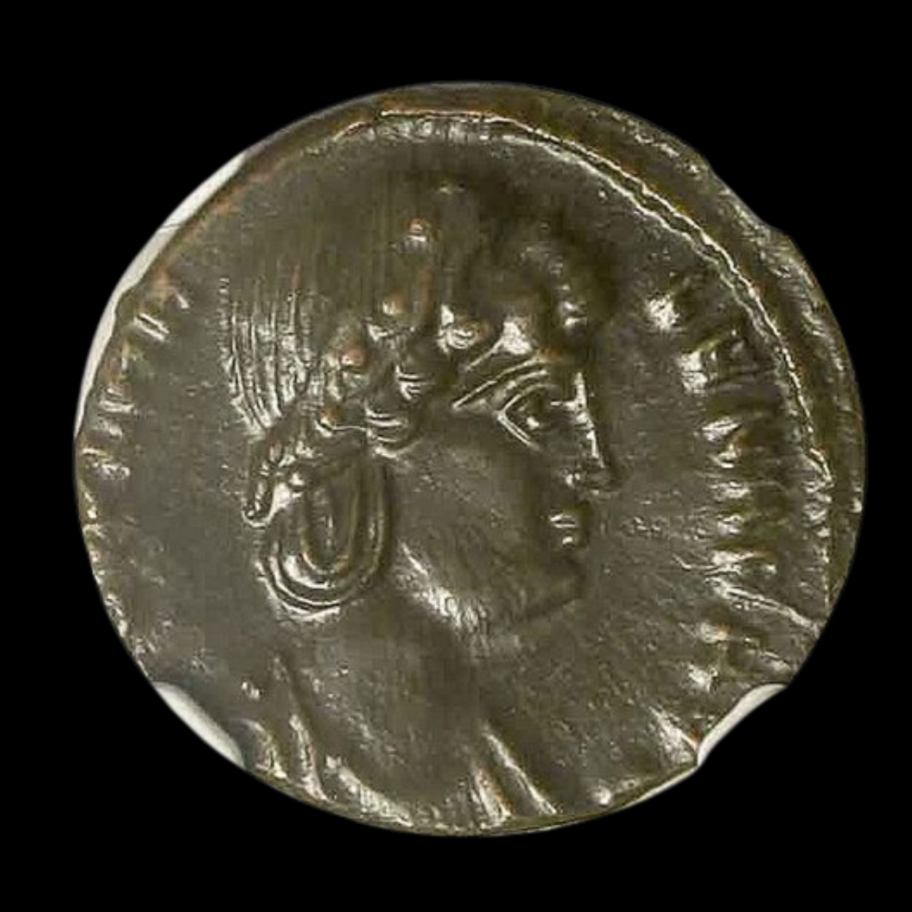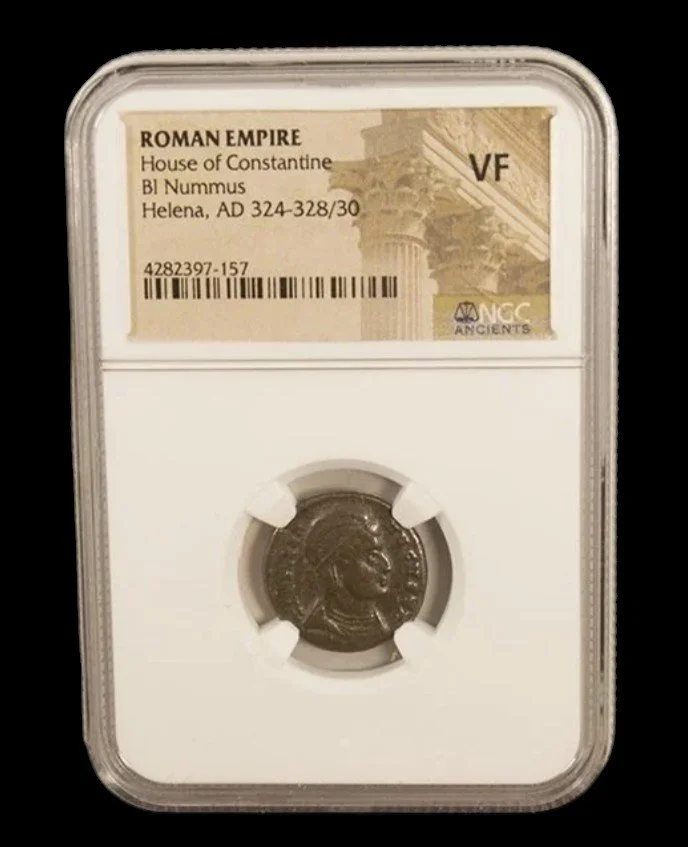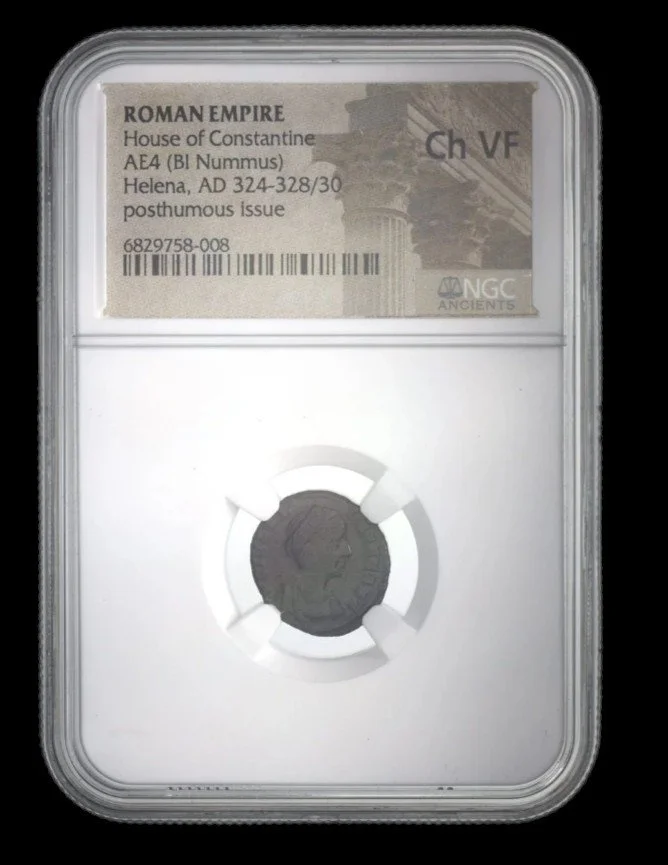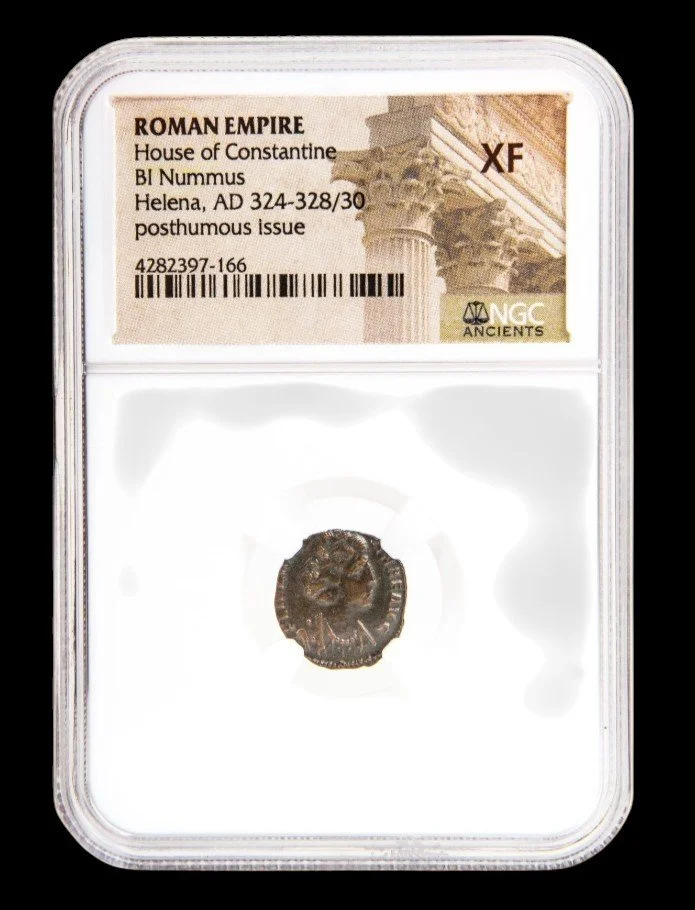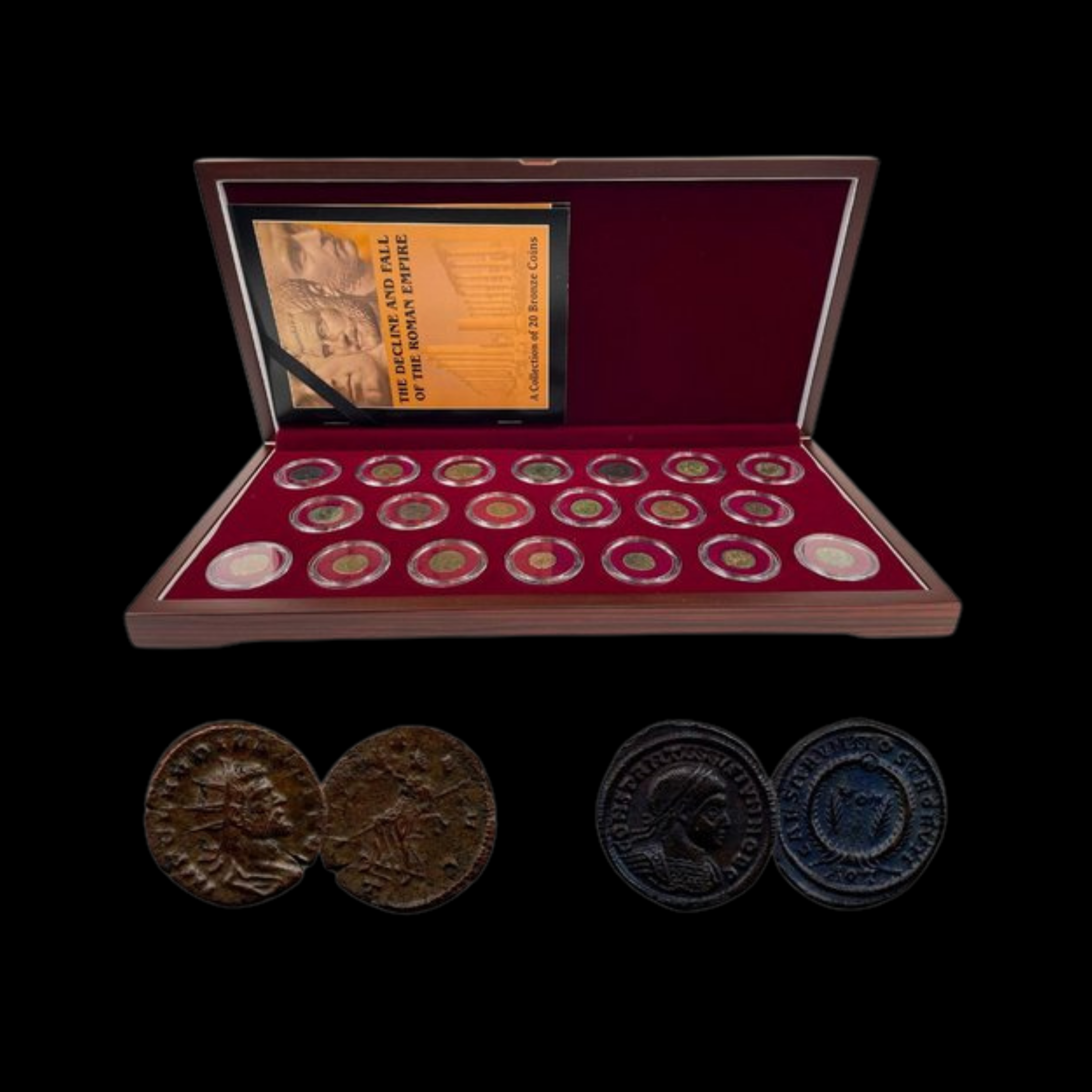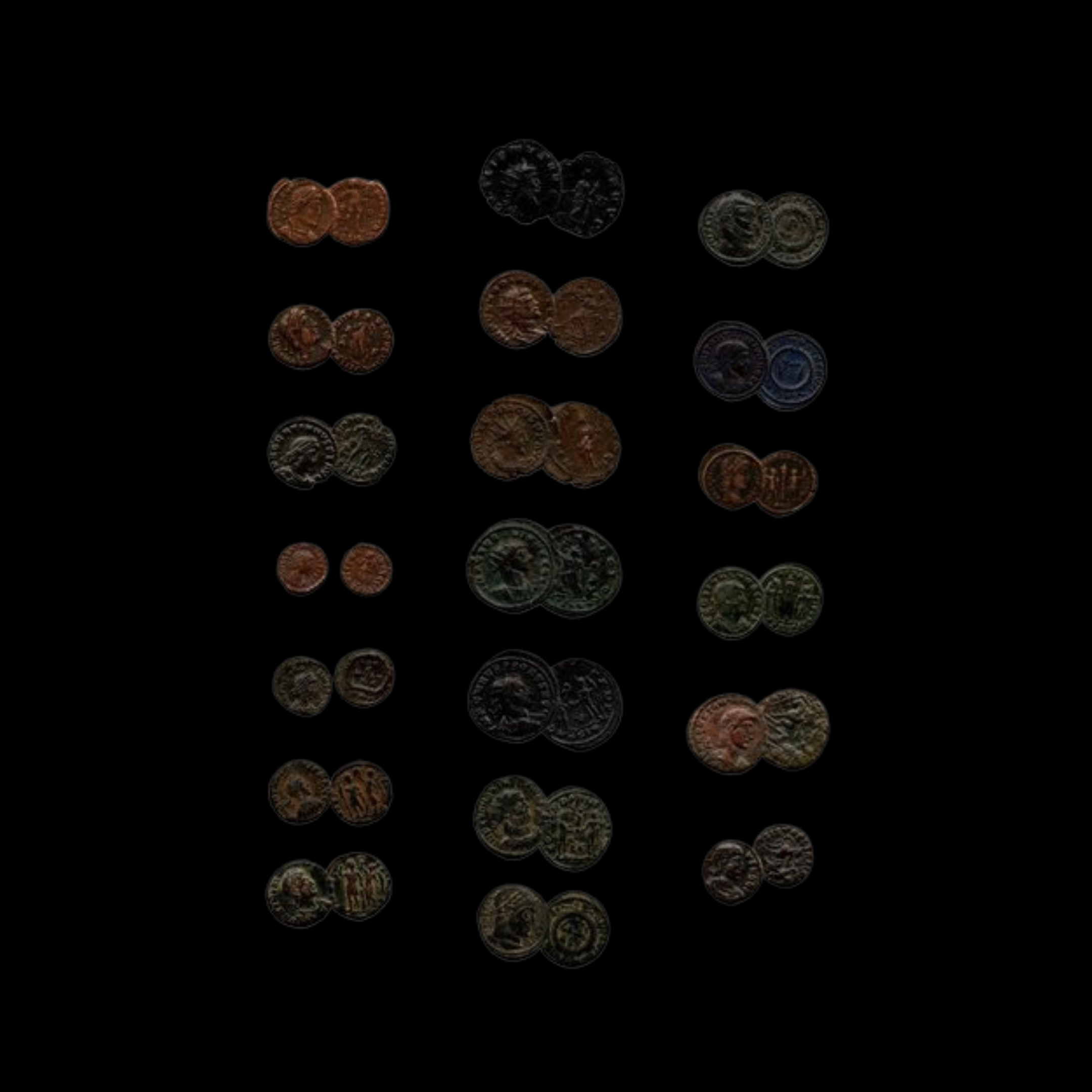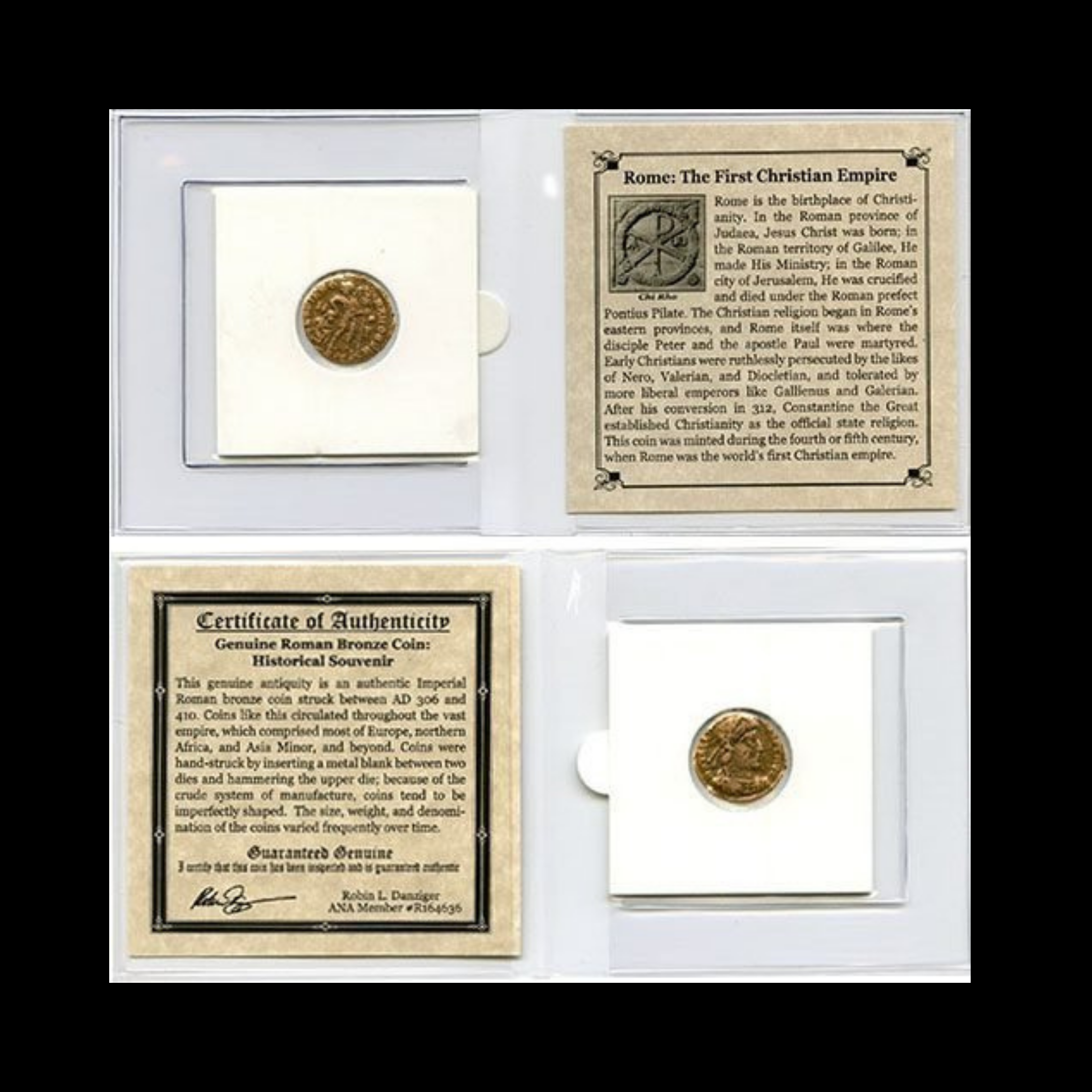 Image 1 of 6
Image 1 of 6

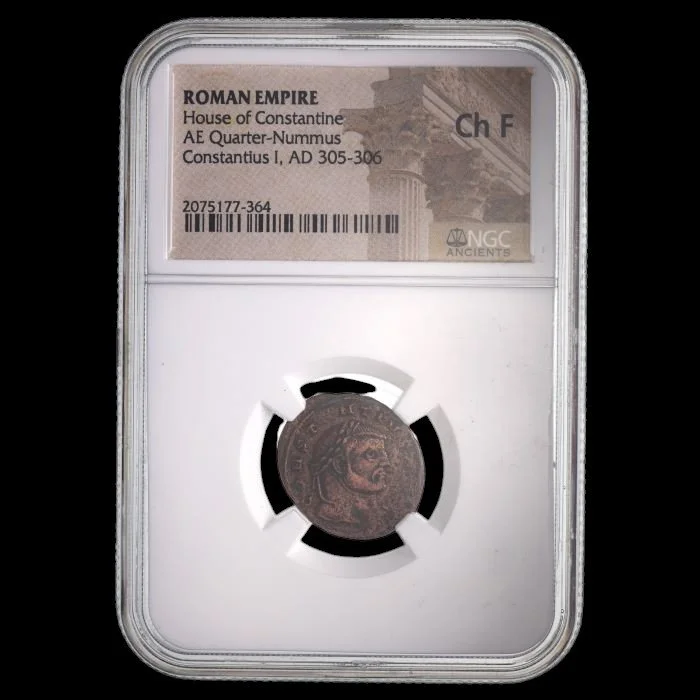 Image 2 of 6
Image 2 of 6

 Image 3 of 6
Image 3 of 6

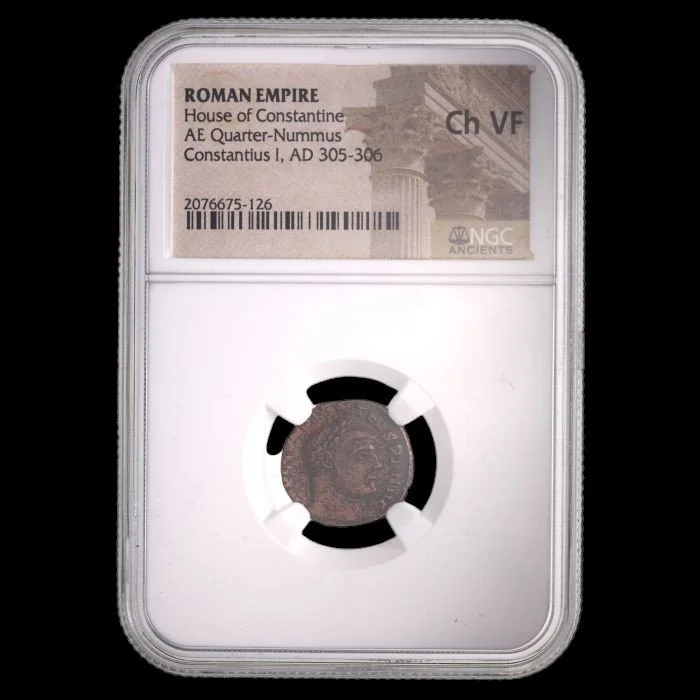 Image 4 of 6
Image 4 of 6

 Image 5 of 6
Image 5 of 6

 Image 6 of 6
Image 6 of 6







Roman Bronze AE3 Quarter-Nummus of Constantius I Chlorus (about 1,720-1,730 years ago)
The coins shown are representative examples of the grade and type, but not the actual specimens for sale. For details on NGC’s grading standards and definitions, please refer to our NGC Grading page.
This bronze coin is a Quarter-Nummus (AE3) issued under Constantius I Chlorus, who served as Caesar (junior emperor) and later Augustus (senior emperor) during the late Roman Empire, approximately 1,720-1,730 years ago. The coin represents the complex political system of the Tetrarchy established by Emperor Diocletian.
Coin Description:
Front side: Portrait of Constantius I Chlorus, likely depicted with short hair and wearing imperial regalia.
Back side: Probably features Roman religious symbolism, personifications, or commemorations of imperial victories with Latin inscriptions.
Technical Details:
Bronze alloy composition
Denomination: AE3 Quarter-Nummus (small denomination bronze coin)
Weight: Approximately 2-3 grams
Diameter: Approximately 18-20 mm
NGC Certified for authentication
Minted between 293-306 CE
Condition as specified by NGC certification
Historical Significance: This coin was minted during a pivotal reorganization of the Roman Empire under the Tetrarchy system, which divided imperial rule among four emperors—two senior Augusti and two junior Caesars. As Western Caesar and later Augustus, Constantius I governed Gaul (modern France) and Britannia (Britain), stabilizing these frontier regions after years of turmoil. He was the father of Constantine the Great, who would later reunify the empire and legalize Christianity. The coin reflects Rome's attempt to bring administrative stability through divided rule following Emperor Diocletian's reforms.
The coins shown are representative examples of the grade and type, but not the actual specimens for sale. For details on NGC’s grading standards and definitions, please refer to our NGC Grading page.
This bronze coin is a Quarter-Nummus (AE3) issued under Constantius I Chlorus, who served as Caesar (junior emperor) and later Augustus (senior emperor) during the late Roman Empire, approximately 1,720-1,730 years ago. The coin represents the complex political system of the Tetrarchy established by Emperor Diocletian.
Coin Description:
Front side: Portrait of Constantius I Chlorus, likely depicted with short hair and wearing imperial regalia.
Back side: Probably features Roman religious symbolism, personifications, or commemorations of imperial victories with Latin inscriptions.
Technical Details:
Bronze alloy composition
Denomination: AE3 Quarter-Nummus (small denomination bronze coin)
Weight: Approximately 2-3 grams
Diameter: Approximately 18-20 mm
NGC Certified for authentication
Minted between 293-306 CE
Condition as specified by NGC certification
Historical Significance: This coin was minted during a pivotal reorganization of the Roman Empire under the Tetrarchy system, which divided imperial rule among four emperors—two senior Augusti and two junior Caesars. As Western Caesar and later Augustus, Constantius I governed Gaul (modern France) and Britannia (Britain), stabilizing these frontier regions after years of turmoil. He was the father of Constantine the Great, who would later reunify the empire and legalize Christianity. The coin reflects Rome's attempt to bring administrative stability through divided rule following Emperor Diocletian's reforms.









